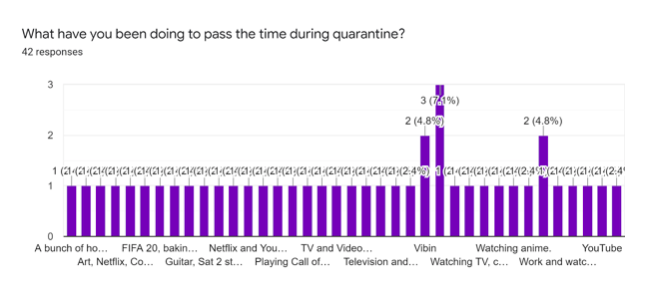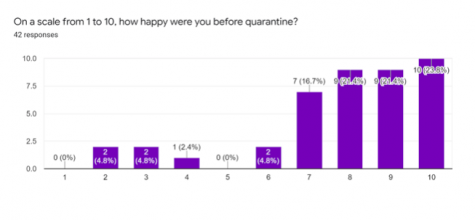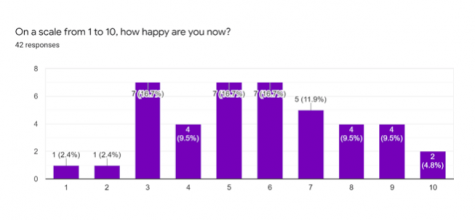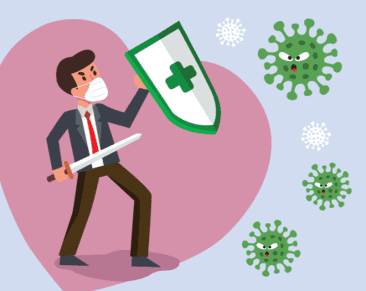How Are Students Positively Affected By Quarantine?
It’s no secret that people around the world are going through a difficult and stressful time. High school students especially, who are already dealing with stress in their teenage years, are struggling with the sudden changes caused by COVID-19. According to a New York Times article written by Lisa Damour that was posted on Schoology by Dr. Zeitchick, over half of teenagers that were surveyed feel that they are falling behind in academic and extracurricular activities because of the pandemic. Similarly, in a school-wide poll where students rated their happiness on a scale of one to ten before and during quarantine, students reported their happiness to have dropped an average of almost 30%. It seems that the coronavirus is negatively affecting the lives of teenagers right now. However, COVID-19 may help benefit the lives of high school students in the future.
Online learning has created an environment in which time seems like an infinite resource. Without the need to actually go to the school building every day, students do not have to wake up as early to get to school on time, saving some students up to three hours a day of commuting. After extracurriculars and a long commute, some students arrive home close to 8 PM, leaving little time to work and barely enough time to sleep. Now that school is coming to the students, chronic lack of time no longer presents an issue. Moreover, school hours are significantly shorter than a regular school day—tefillah starts an hour later and classes end an hour earlier. That means that all students gain an extra hour in the morning and another in the evening that would have been spent in class.
A popular complaint among Ramaz students is that there is not enough time to sleep sufficient hours a night. Now, with ample time to spend at home in bed, students can sleep much more. In order to stay healthy, most teenagers should sleep 7-9 hours a night. Because of the coronavirus and online learning situation, students tend to have sufficient time to fulfill their necessary evening activities and enforce a proper sleeping schedule.
Before Zoom learning began, many students complained that they were unable to find time to exercise and keep their bodies healthy. Exercising as a teenager helps promote healthy exercising habits in the future, and many students agreed that they are using this extra time to exercise; in a poll, a quarter of students said they are spending their time in quarantine exercising much more than they normally would.
Aside from the possible physical benefits of quarantine, the practice of persevering through difficult times can build emotional strength as well. In an interview, Dr. Zeitchick elaborated on how students and adults can actually use this difficult time to grow. Three factors influence how people grow from difficult situations, elaborated Zeitchik: the specific circumstances a person faces, personality, and choice. He believes that there are two important steps in order to increase the likelihood of personal growth during these hard times. First, people have to remain realistic and understand that there are limitations both practically and emotionally that limit what can do in this difficult situation. People need to recognize that there are things they cannot do during quarantine in order to then constructively find a way around these issues or to find unique opportunities for meaning that the situation presents. Second, people should actively take strides to solve these new challenges instead of avoiding the problems at hand. By maintaining a realistic mindset that recognizes the challenges that we all face, steps can be taken to make the most of the difficult situation and address the problems at hand. “Learning to grow within these difficult situations and to accept difficult realities and feelings that are part of the human condition, will help make a person more resilient and will help benefit his or her future,” said Dr. Zeitchick. The key to growth during this crisis is putting in the effort to make this period of social distancing, at least in part, a positive experience rather than a negative one. Although there is much to be learned from this difficult and tragic situation, it is important to remember that growth is more powerful when it emerges from challenging situations.










